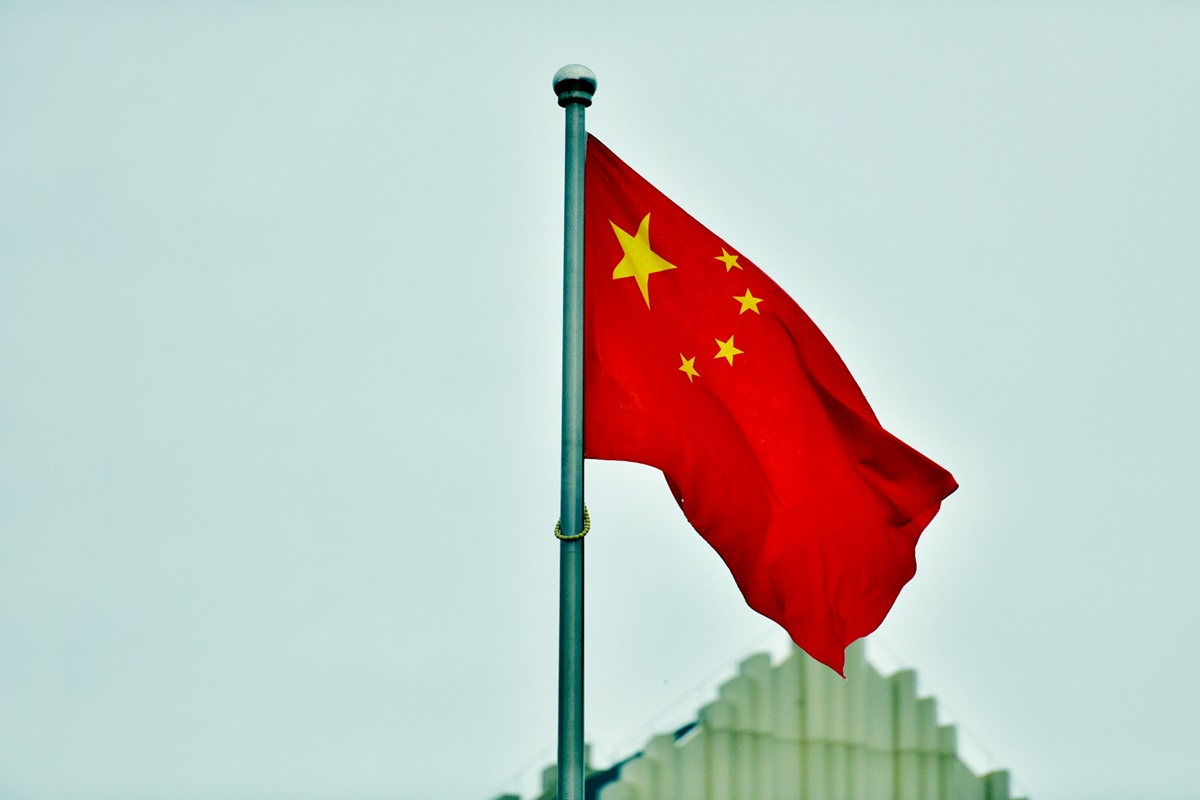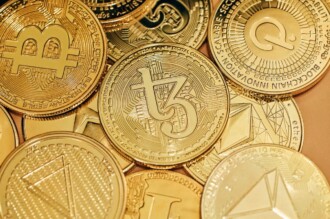The annual legislative meeting will be held in Beijing next week, during which the goal of China’s economic growth and plans to achieve it will be discussed.

The media reports that within the framework of the mentioned event, attention will also be paid to the energy transition. It is worth noting that this initiative is the focus of the attention of investors in commodities. The Chinese government holds similar meetings every year, following which tactical and strategic guidelines for the country’s economic development are formed.
Beijing also has to solve the problem of energy efficiency. China has not been able to fully achieve its initial goals in the corresponding area. In this case, Beijing is likely to have to improve policy measures aimed at improving energy efficiency. Moreover, China is currently in a state of tension due to concerns about the risks of disrupting the supply of fuel, food, and raw materials, including minerals. It is worth noting that these supplies are of critical importance in the context of achieving goals related to the development of advanced production and decarbonization.
Currently, China has the status of the largest importer of raw materials in the world area. Beijing’s activity in this direction largely determines the state of global markets. China’s actions are a factor of critical impact on the volume of global supplies of oil and gas, copper, and grain. Beijing’s activity can also be described as a factor correlating to the economic performance of exporters of raw materials.
China is home to several of the world’s largest factories in the coal, aluminum, and steel industries. Moreover, the country has become the epicenter of the introduction of renewable energy sources on a global scale. Likely, the issues of further development of the industrial sector and the strategy for the implementation of energy initiatives will become the defining semantic elements of the content of the discussions that will take place during the National People’s Congress.
The sphere of construction forms a kind of base of demand for metals. In this case, it does not matter whether the real estate sector or infrastructure projects are meant. At the same time, Beijing is currently facing serious problems in this area. The crisis in the Chinese real estate sector turned out to be deeper and longer than initial estimates of the prospects for the evolving of the situation. This negative state of affairs has already caused the collapse of the country’s largest developers and the corresponding trend has not yet lost its force. For example, the Country Garden company faced a liquidation petition.
Beijing is trying to cope with the crisis in the real estate sector. Currently, there is no definitive understanding of the willingness and capabilities of the Chinese authorities to increase public spending as part of measures to counter the difficult situation in the specified area. Beijing’s relevant decisions will have an impact on the cost of copper and iron ore, which is the main ingredient in steel production.
Traders who belong to the category with the symbolic name Bulls hope that China will increase government spending to overcome the crisis in the real estate sector. The strategy of these traders is to buy stocks for which there is a high probability of realizing growth prospects.
If Beijing decides to increase government spending, this will show up in targets for bond sales and budget deficits. The corresponding figures last year were relatively unambitious. In this case, it should be taken into account the fact that the Chinese economy has significantly weakened during the period of strict quarantine due to the coronavirus, which limited production and business processes. There is a high probability that in this direction, 2024 will be a kind of period of continuation of those tendencies that were dominant last year.
Currently, Beijing is trying to find a balance between forming conditions for economic growth and the strained financial situation in which the Chinese municipal authorities are being.
It is worth noting that an increase in spending as a measure of improving the economic situation is not what can be described as a universal action that can guarantee a final solution to the problem. However, the importance of such a strategy should not be underestimated.
In the process of economic development, the costs of implementing infrastructure projects have become less dependent on steel and cement. In the current reality, copper suppliers are in a better position. Exporters of this metal can make a profit as a result of Beijing’s increased attention to investing in projects that provide for a responsible approach in terms of environmental parameters.
In recent years, China has managed to achieve record volumes of coal production. In part, appropriate actions are a necessity that arose against the background of a shortage of electricity. After 2025, Beijing intends to intensively improve the environmental performance of the energy sector. China is gradually approaching a large-scale transition. The country strives to maximize the development of clean energy. The head of the People’s Republic of China, Xi Jinping, pledged to peak national emissions by the end of the decade. This intention is an important stage in the country’s movement towards the so-called net zero.
China’s leading coal mining hubs have already announced that production growth will slow down in 2024. Also, representatives of this sphere of activity declare their intention to increase the volume of investments in renewable sources of energy. Relevant initiatives are likely to be discussed at the above-mentioned meeting next week.
China will also have to take additional measures to ensure that markets and power grids would be able to absorb all extra clean power.
At the same time, the National People’s Congress is likely to present arguments in favor of the continued active use of fossil fuels. Coal production is declining, but in the coming years, Beijing will be forced to increase gas production to reduce dependence on foreign fuel suppliers. Also, the Chinese authorities are likely to officially state their interest in ensuring that the country’s largest oil companies maintain an increase in crude oil output.
For the past two years, energy security has been a priority issue of critical importance for Beijing. Currently, the Chinese authorities are likely to pay more attention to efficiency. This forecast is based on the fact that climate and environmental issues are becoming increasingly important for Beijing. In recent months, officials have repeatedly stated that China is failing to achieve goals related to improving air quality and taking measures to reduce the amount of energy and emissions. The concerning solutions are needed to intensify economic growth.
Excessive burning of coal has natural consequences. Last year, an increase in air pollution was recorded in Beijing. This result contradicts the tendencies of previous years. Also last year, energy consumption in China showed growth exceeding the rate of increase in gross domestic product. The relevant data was published by the Centre for Research on Energy and Clean Air. It is worth noting that the mentioned ratio of indicators was recorded for the first time since 2005.
Focusing on environmental protection will allow Beijing to maintain the momentum of incredible growth in the renewable energy area. At the same time, the corresponding concept will become a factor of pressure on municipal authorities, forcing them to curb energy-intensive segments of the Chinese industrial system.
Beijing has already caps on or plans to limit the production and growth of production capacities for manufacturing steel and aluminum, and oil refining. The possibility of introducing appropriate measures for copper is also being considered. Comments on intentions regarding the regulation of carbon-heavy sectors, which will be made public next week, will help to form an understanding of the degree of probability of increased restrictions in the future.
Carbon traders are interested in forming partnerships in the Chinese emissions market, which is expected to have new segments shortly for the first time since 2021. Opposition to the European Union’s carbon regime may intensify, which will become another trade flashpoint as advanced economies compete for the tangible results of decarbonization.
Food security continues to be one of the top priority issues for Beijing in the context of public administration. The impact of the coronavirus pandemic on supply chains, expressed in various kinds of disruptions, and the growing tension in the plane of geopolitical relationships mean that the goals associated with the mentioned aspect of the country’s existence continue to be relevant.
The threat of extreme weather conditions, partly due to climate change, is likely to transform into a factor of negative impact on the financial condition of the Chinese government. Last year, heavy rains reduced the wheat harvest. Also, due to the abnormal heat, damage was caused to the cotton crop. Against the background of these negative circumstances, prices have increased and China’s import needs have grown.
Xi Jinping called for improving the set of measures to prevent and minimize the consequences of natural disasters, which are a factor of negative impact on the sphere of agriculture. It is worth noting that the implementation of relevant initiatives has largely become the responsibility of local authorities, who are currently under pressure from the debt burden.
Beijing is currently seeking to spread narratives that shape the ideology of self-sufficiency, including in an economic sense. However, such statements do not negate clear signs that China will accelerate the diversification of import sources. Self-sufficiency remains a goal for now, the materialization of which is a long-term task.









